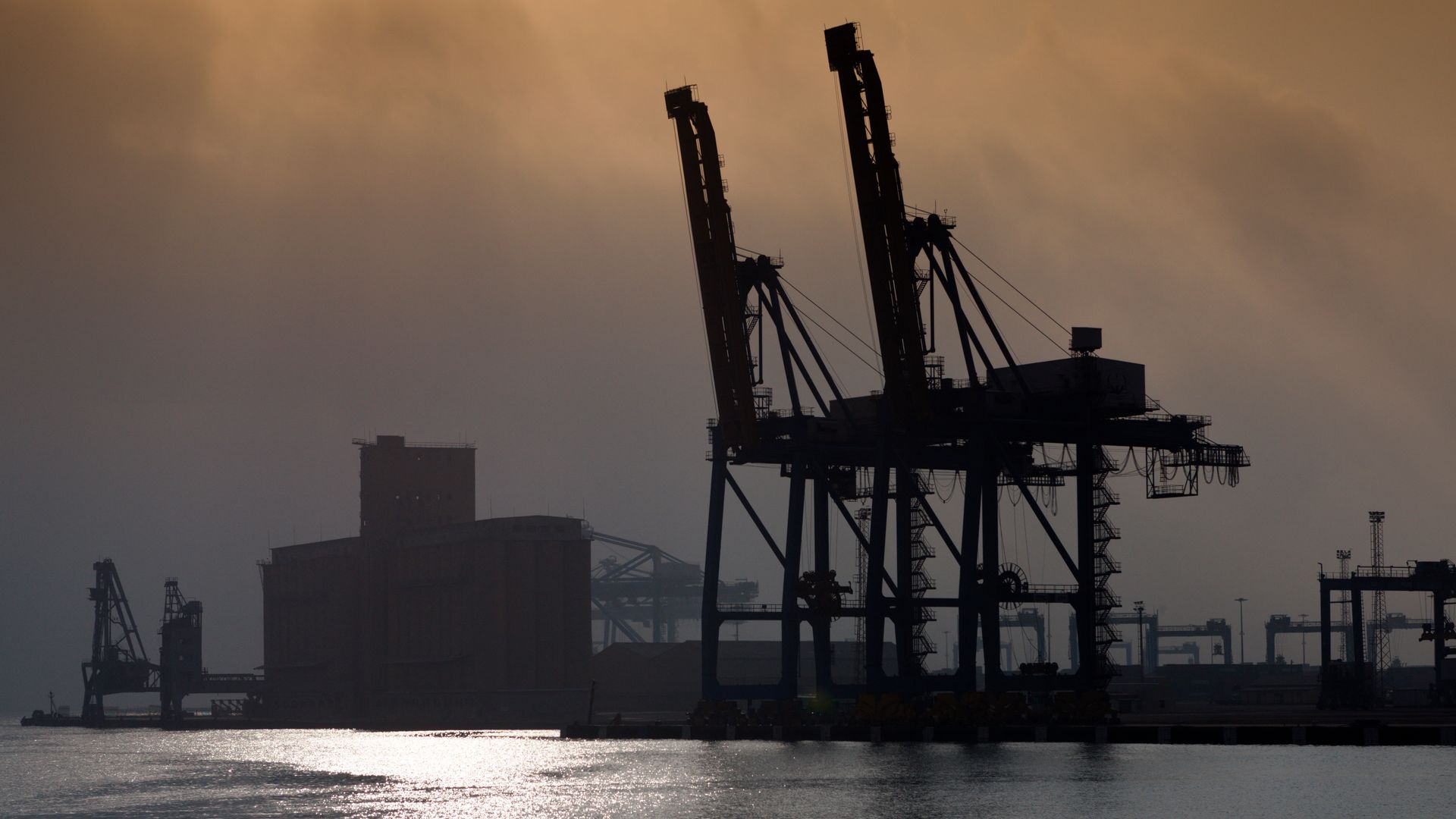
[RYAN ROBERTSON]
WHILE IT’S NOT TRUE IN EVERY INSTANCE, THE CRISIS IN THE RED SEA DOES HAVE A FAMILIAR PATTERN. THE HOUTHIS SHOOT MISSILES AT AN ARRAY OF POTENTIAL TARGETS, THE AMERICANS RESPOND BY SHOOTING DOWN THOSE MISSILES WITH THEIR MISSILES. THEN BOTH SIDES TELL THE MEDIA WHAT THEY JUST DID. RINSE AND REPEAT. BUT THE LONGER THIS CONTINUES, THE EVENTUAL IMPACT ON AMERICAN CONSUMERS CONTINUES TO GROW.
WHILE ONLY A SMALL PART OF AMERICA’S TRADE FLOWS THROUGH THE SUEZ CANAL, IT’S THE CUMULATIVE EFFECT OF HAVING TANKERS CHANGE ROUTES TO SAFELY DELIVER THEIR SHIPMENTS OF LIQUID NATURAL GAS AND LIQUEFIED PETROLEUM GAS THAT COULD HIT AMERICANS IN THE WALLET..
[Sal Mercogliano]
“So we’re seeing it move in a different way than normally. That is having an impact on the supply chain, because it’s taking longer, 3,500 extra miles, which is anywhere from seven to 14 days. And it’s putting ships on routes that they normally don’t do.”
[RYAN ROBERTSON]
SAL MERCOGLIANO IS AN ASSOCIATE PROFESSOR OF HISTORY AT CAMPBELL UNIVERSITY WITH AN EXTENSIVE BACKGROUND IN SHIPPING. HE’S ALSO A YOUTUBER. STARTING IN 2011, HIS CHANNEL ‘WHAT’S GOING ON WITH SHIPPING?’ HAS INFORMED VIEWERS ABOUT THE SHIPPING INDUSTRY. OVER THE PAST SEVERAL MONTHS HIS FOCUS, LIKE THE WORLD’S, HAS BEEN TURNED TO THE RED SEA,
[Sal Mercogliano]
“We’re definitely seeing a wider range of attacks. It’s not just in the southern Red Sea anymore. It’s in the Bab al-Mandab, that very southern strait. Seeing it in the Gulf of Aden, seeing it out in the Arabian Sea, and we’re seeing it more out into the Indian Ocean with some attacks off motherships in and around that region. So, definitely an expansion in the attacks we’re seeing.”
[RYAN ROBERTSON]
FOR THOSE THAT HAVEN’T BEEN PAYING CLOSE ATTENTION, THIS MIGHT SEEM LIKE A REPEAT OF THE SOMALI PIRACY HEYDAYS OF THE LATE 2000s.
[Sal Mercogliano]
“I can say right now, piracy right now is not even a blip on the radar. Most ships, this is not what they’re worried about. The Red Sea and the Houthis are the issue right now. Because the attacks, there have been three [pirate] attacks so far? In terms of 1000s of ships sailing through the area?”
[RYAN ROBERTSON]
OF COURSE, THE BIGGEST QUESTION ON MOST PEOPLE’S MINDS, WHAT’S IT GOING TO TAKE TO PUT AN END TO THESE MISSILE ATTACKS.
[Sal Mercogliano]
“There’s very little leverage against the Houthis you can apply, because it’s ideological. The one group you can apply pressure to is Iran. But it’s very hard to apply pressure against Iran, because what they see is one of their client states is interdicting a key choke point. They already interdict the Straits of Hormuz when they want to. Now they can do the Bab al-Mandab. So, it is extremely difficult to see a prospect where this ends anytime soon without a resolution up in Israel.”
[RYAN ROBERTSON]
WHILE AN END TO THE CRISIS MAY NOT BE IN-SIGHT, THOSE HELPING DEFEND AGAINST THE HOUTHI ATTACKS ARE ABOUT TO GET AN ASSIST IN THE EFFORT WITH THE EUROPEAN UNION ANNOUNCING THEY WILL BE SENDING A NAVAL MISSION TO THE AREA WITHIN THE NEXT THREE WEEKS.







